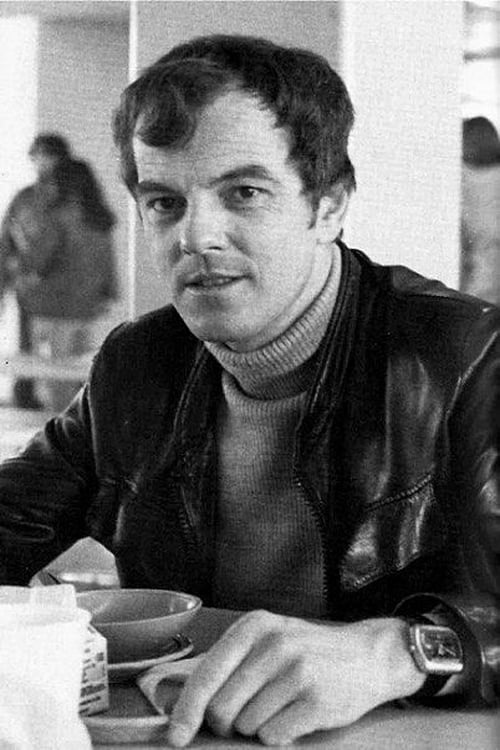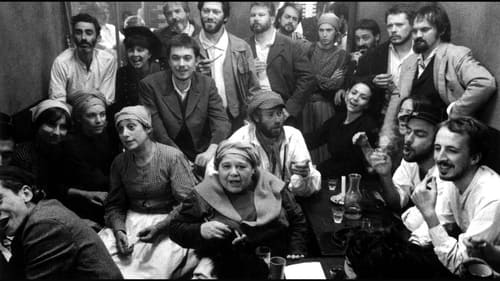
Editor
We are in the year 1871. A journalist for Versailles Television broadcasts a soothing and official view of events while a Commune television is set up to provide the perspectives of the Paris rebels. On a stage-like set, more than 200 actors interpret characters of the Commune, especially the Popincourt neighbourhood in the XIth arrondissement. They voice their own thoughts and feelings concerning the social and political reforms. The scenes consist mainly of long camera takes.

Writer
We are in the year 1871. A journalist for Versailles Television broadcasts a soothing and official view of events while a Commune television is set up to provide the perspectives of the Paris rebels. On a stage-like set, more than 200 actors interpret characters of the Commune, especially the Popincourt neighbourhood in the XIth arrondissement. They voice their own thoughts and feelings concerning the social and political reforms. The scenes consist mainly of long camera takes.

Director
We are in the year 1871. A journalist for Versailles Television broadcasts a soothing and official view of events while a Commune television is set up to provide the perspectives of the Paris rebels. On a stage-like set, more than 200 actors interpret characters of the Commune, especially the Popincourt neighbourhood in the XIth arrondissement. They voice their own thoughts and feelings concerning the social and political reforms. The scenes consist mainly of long camera takes.

Himself
This feature documentary is a portrait of Peter Watkins, an Oscar®-winning British filmmaker who, for the past 4 decades, has proved that films can be made without compromise. With the proliferation of TV channels, documentaries are enjoying an unprecedented boom fuelled by audiences seeking an alternative to infotainment. But now documentary filmmaking, too, finds itself constrained by the imperatives of television. However, there is a rebel resisting this uniformity of the spirit. Pre-eminent among today's documentary filmmakers concerned about this mind-numbing standardization, Peter Watkins has never strayed from either his principles or the cause.

Writer
The film portrays the Swedish playwright, novelist, poet, essayist and painter August Strindberg's life 1849-1912. Through his extensive correspondence and literary production, from the supposed first work, the drama "The Free Thinker" (1869), to the posthumously published "The Occult Diary" (published 1977 ). But also his three wives, Siri von Essen, Frida Uhl and Harriet Bosse, and the children Karin, Greta and Hans are given space in the film. The unpublished first drama "The Free Thinker", depicts a young man forced to break with family and tradition to follow his conscience and ideals, becomes a prophecy about the author's own life.

Director
The film portrays the Swedish playwright, novelist, poet, essayist and painter August Strindberg's life 1849-1912. Through his extensive correspondence and literary production, from the supposed first work, the drama "The Free Thinker" (1869), to the posthumously published "The Occult Diary" (published 1977 ). But also his three wives, Siri von Essen, Frida Uhl and Harriet Bosse, and the children Karin, Greta and Hans are given space in the film. The unpublished first drama "The Free Thinker", depicts a young man forced to break with family and tradition to follow his conscience and ideals, becomes a prophecy about the author's own life.

Policeman
The film portrays the Swedish playwright, novelist, poet, essayist and painter August Strindberg's life 1849-1912. Through his extensive correspondence and literary production, from the supposed first work, the drama "The Free Thinker" (1869), to the posthumously published "The Occult Diary" (published 1977 ). But also his three wives, Siri von Essen, Frida Uhl and Harriet Bosse, and the children Karin, Greta and Hans are given space in the film. The unpublished first drama "The Free Thinker", depicts a young man forced to break with family and tradition to follow his conscience and ideals, becomes a prophecy about the author's own life.

Post Production Supervisor
The film portrays the Swedish playwright, novelist, poet, essayist and painter August Strindberg's life 1849-1912. Through his extensive correspondence and literary production, from the supposed first work, the drama "The Free Thinker" (1869), to the posthumously published "The Occult Diary" (published 1977 ). But also his three wives, Siri von Essen, Frida Uhl and Harriet Bosse, and the children Karin, Greta and Hans are given space in the film. The unpublished first drama "The Free Thinker", depicts a young man forced to break with family and tradition to follow his conscience and ideals, becomes a prophecy about the author's own life.

Editor
The film portrays the Swedish playwright, novelist, poet, essayist and painter August Strindberg's life 1849-1912. Through his extensive correspondence and literary production, from the supposed first work, the drama "The Free Thinker" (1869), to the posthumously published "The Occult Diary" (published 1977 ). But also his three wives, Siri von Essen, Frida Uhl and Harriet Bosse, and the children Karin, Greta and Hans are given space in the film. The unpublished first drama "The Free Thinker", depicts a young man forced to break with family and tradition to follow his conscience and ideals, becomes a prophecy about the author's own life.

Script
The film portrays the Swedish playwright, novelist, poet, essayist and painter August Strindberg's life 1849-1912. Through his extensive correspondence and literary production, from the supposed first work, the drama "The Free Thinker" (1869), to the posthumously published "The Occult Diary" (published 1977 ). But also his three wives, Siri von Essen, Frida Uhl and Harriet Bosse, and the children Karin, Greta and Hans are given space in the film. The unpublished first drama "The Free Thinker", depicts a young man forced to break with family and tradition to follow his conscience and ideals, becomes a prophecy about the author's own life.

Writer
A film that criticises and discussed the Australian media coverage of the first gulf war.

Director
A film that criticises and discussed the Australian media coverage of the first gulf war.

Narrator / Self
Peter Watkins' global look at the impact of military use of nuclear technology and people's perception of it, as well as a meditation on the inherent bias of the media, and documentaries themselves.

Sound Editor
Peter Watkins' global look at the impact of military use of nuclear technology and people's perception of it, as well as a meditation on the inherent bias of the media, and documentaries themselves.

Editor
Peter Watkins' global look at the impact of military use of nuclear technology and people's perception of it, as well as a meditation on the inherent bias of the media, and documentaries themselves.

Producer
Peter Watkins' global look at the impact of military use of nuclear technology and people's perception of it, as well as a meditation on the inherent bias of the media, and documentaries themselves.

Writer
Peter Watkins' global look at the impact of military use of nuclear technology and people's perception of it, as well as a meditation on the inherent bias of the media, and documentaries themselves.

Director
Peter Watkins' global look at the impact of military use of nuclear technology and people's perception of it, as well as a meditation on the inherent bias of the media, and documentaries themselves.

Editor
Denmark is in deep crisis: the country is hit by general strike, during the holding of a NATO summit in Copenhagen. Meanwhile, a minister is kidnapped by extremists, and state power cracks down against politically-active leftists.

Idea
Denmark is in deep crisis: the country is hit by general strike, during the holding of a NATO summit in Copenhagen. Meanwhile, a minister is kidnapped by extremists, and state power cracks down against politically-active leftists.

Director
Denmark is in deep crisis: the country is hit by general strike, during the holding of a NATO summit in Copenhagen. Meanwhile, a minister is kidnapped by extremists, and state power cracks down against politically-active leftists.

Writer
Set in the underground living quarters of a scientist working at an international nuclear waste station near the west coast of Sweden. It is the end of 1999, and the TV in the oppressive living room inhabited by John (the scientist), his wife Margereta, and their son Peter, is proclaiming optimistic statements about the promise of the New Millennium.

Director
Set in the underground living quarters of a scientist working at an international nuclear waste station near the west coast of Sweden. It is the end of 1999, and the TV in the oppressive living room inhabited by John (the scientist), his wife Margereta, and their son Peter, is proclaiming optimistic statements about the promise of the New Millennium.

Writer
The Seventies People is a 1975 television docu-drama that was produced by Danmarks Radio. The film explores the high suicide rate in Denmark, the many factors behind it and how the average citizen deals with the stress of life, work, school and family.

Director
The Seventies People is a 1975 television docu-drama that was produced by Danmarks Radio. The film explores the high suicide rate in Denmark, the many factors behind it and how the average citizen deals with the stress of life, work, school and family.
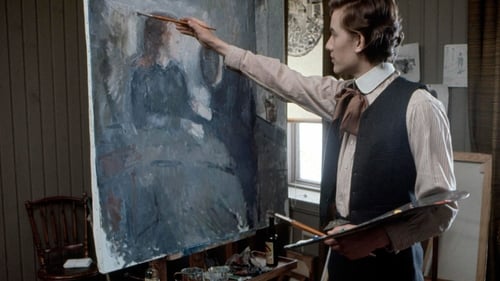
Editor
‘절규’로 잘 알려진 노르웨이의 화가 뭉크의 생애를 그의 일기 속 대화 등을 직접 차용하여 재현하였다. 감독의 다른 작품과 마찬가지로 비전문배우를 캐스팅하였다. 죽음과 질투의 화가로 알려진 뭉크는 어린시절 어머니와 누이를 결핵으로 잃고 자신도 같은 병으로 죽음의 문턱을 경험한다. 또한 평생의 애인이었던 헤이버그 부인과의 이루어지지 못한 사랑으로 인해 자연주의 화풍을 버리고 자신만의 독특한 화풍을 구축하게 된다. - 제8회 전주국제영화제

Writer
‘절규’로 잘 알려진 노르웨이의 화가 뭉크의 생애를 그의 일기 속 대화 등을 직접 차용하여 재현하였다. 감독의 다른 작품과 마찬가지로 비전문배우를 캐스팅하였다. 죽음과 질투의 화가로 알려진 뭉크는 어린시절 어머니와 누이를 결핵으로 잃고 자신도 같은 병으로 죽음의 문턱을 경험한다. 또한 평생의 애인이었던 헤이버그 부인과의 이루어지지 못한 사랑으로 인해 자연주의 화풍을 버리고 자신만의 독특한 화풍을 구축하게 된다. - 제8회 전주국제영화제

Director
‘절규’로 잘 알려진 노르웨이의 화가 뭉크의 생애를 그의 일기 속 대화 등을 직접 차용하여 재현하였다. 감독의 다른 작품과 마찬가지로 비전문배우를 캐스팅하였다. 죽음과 질투의 화가로 알려진 뭉크는 어린시절 어머니와 누이를 결핵으로 잃고 자신도 같은 병으로 죽음의 문턱을 경험한다. 또한 평생의 애인이었던 헤이버그 부인과의 이루어지지 못한 사랑으로 인해 자연주의 화풍을 버리고 자신만의 독특한 화풍을 구축하게 된다. - 제8회 전주국제영화제
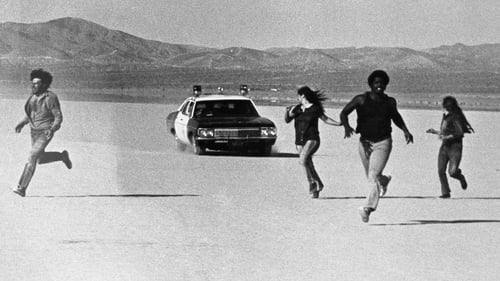
Editor
1970년 미국은 대외적으로 베트남전의 수렁에 빠져있고, 대내적으로는 흑인 인권신장, 반전운동 등의 내홍에 빠져있다. 이에 미국 정부는 국가 비상사태를 선언하고, 평화주의자, 탈영병, 무정부주의자 같은 이들을 즉결 재판에 넘긴다. 중형을 선고받을 수도 있는 이 재판에서 대다수는 감옥형을 대신할 사막에 위치한 퍼니시먼트 파크라 칭해진 징벌원 행을 택한다. 물 한 모금 공급되지 않는 여건 속에서, 이들은 사흘 동안 인간사냥을 펼치는 경찰들을 피해 사막 어딘가에 꽂혀 있을 미국 국기를 찾아내야 한다. 이 영화는 영화제를 제외하고는 극장상영이 수년간 금지되거나, 18세 이상 관람가로 개봉되었다. 와킨스 감독은 영화의 가상현실이 더욱더 현실성을 가지도록 흔히, 다큐멘터리 또는 매스 미디어 현장 보도의 코드를 그대로 이용한다. 끊임없이 흔들리는 어깨에 멘 카메라, 정면으로 카메라를 바라보거나 직접 인터뷰에 응하는 비직업 배우들로 구성된 등장인물들, 촬영을 방해하며 손으로 카메라 렌즈를 가리는 경찰들… 현실을 패러디를 통해 풍자하는 페이크 다큐멘터리의 대부인 피터 와킨스 감독은 이런 장치들을 통해, 가상현실이 더욱 강화된 현장감과 현실감을 획득하면서, 관객들을 혼란에 빠트리게 하고, 관객들에게 이 가상의 현실이 픽션의 세계를 벗어나 자신들 앞의 현실로 다가올 수 있음을, 어쩌면 벌써 다른 형태로 다가와 있음을 되새기게 한다.

Screenplay
1970년 미국은 대외적으로 베트남전의 수렁에 빠져있고, 대내적으로는 흑인 인권신장, 반전운동 등의 내홍에 빠져있다. 이에 미국 정부는 국가 비상사태를 선언하고, 평화주의자, 탈영병, 무정부주의자 같은 이들을 즉결 재판에 넘긴다. 중형을 선고받을 수도 있는 이 재판에서 대다수는 감옥형을 대신할 사막에 위치한 퍼니시먼트 파크라 칭해진 징벌원 행을 택한다. 물 한 모금 공급되지 않는 여건 속에서, 이들은 사흘 동안 인간사냥을 펼치는 경찰들을 피해 사막 어딘가에 꽂혀 있을 미국 국기를 찾아내야 한다. 이 영화는 영화제를 제외하고는 극장상영이 수년간 금지되거나, 18세 이상 관람가로 개봉되었다. 와킨스 감독은 영화의 가상현실이 더욱더 현실성을 가지도록 흔히, 다큐멘터리 또는 매스 미디어 현장 보도의 코드를 그대로 이용한다. 끊임없이 흔들리는 어깨에 멘 카메라, 정면으로 카메라를 바라보거나 직접 인터뷰에 응하는 비직업 배우들로 구성된 등장인물들, 촬영을 방해하며 손으로 카메라 렌즈를 가리는 경찰들… 현실을 패러디를 통해 풍자하는 페이크 다큐멘터리의 대부인 피터 와킨스 감독은 이런 장치들을 통해, 가상현실이 더욱 강화된 현장감과 현실감을 획득하면서, 관객들을 혼란에 빠트리게 하고, 관객들에게 이 가상의 현실이 픽션의 세계를 벗어나 자신들 앞의 현실로 다가올 수 있음을, 어쩌면 벌써 다른 형태로 다가와 있음을 되새기게 한다.

Director
1970년 미국은 대외적으로 베트남전의 수렁에 빠져있고, 대내적으로는 흑인 인권신장, 반전운동 등의 내홍에 빠져있다. 이에 미국 정부는 국가 비상사태를 선언하고, 평화주의자, 탈영병, 무정부주의자 같은 이들을 즉결 재판에 넘긴다. 중형을 선고받을 수도 있는 이 재판에서 대다수는 감옥형을 대신할 사막에 위치한 퍼니시먼트 파크라 칭해진 징벌원 행을 택한다. 물 한 모금 공급되지 않는 여건 속에서, 이들은 사흘 동안 인간사냥을 펼치는 경찰들을 피해 사막 어딘가에 꽂혀 있을 미국 국기를 찾아내야 한다. 이 영화는 영화제를 제외하고는 극장상영이 수년간 금지되거나, 18세 이상 관람가로 개봉되었다. 와킨스 감독은 영화의 가상현실이 더욱더 현실성을 가지도록 흔히, 다큐멘터리 또는 매스 미디어 현장 보도의 코드를 그대로 이용한다. 끊임없이 흔들리는 어깨에 멘 카메라, 정면으로 카메라를 바라보거나 직접 인터뷰에 응하는 비직업 배우들로 구성된 등장인물들, 촬영을 방해하며 손으로 카메라 렌즈를 가리는 경찰들… 현실을 패러디를 통해 풍자하는 페이크 다큐멘터리의 대부인 피터 와킨스 감독은 이런 장치들을 통해, 가상현실이 더욱 강화된 현장감과 현실감을 획득하면서, 관객들을 혼란에 빠트리게 하고, 관객들에게 이 가상의 현실이 픽션의 세계를 벗어나 자신들 앞의 현실로 다가올 수 있음을, 어쩌면 벌써 다른 형태로 다가와 있음을 되새기게 한다.
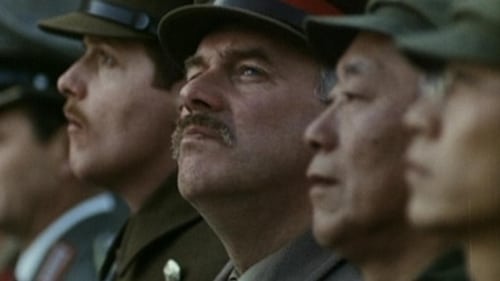
Writer
Some time in the future, East and West have stopped maintaining standing armies and nuclear weapons. Instead, to settle their differences they pit different teams of crack combat specialists against each other.

Director
Some time in the future, East and West have stopped maintaining standing armies and nuclear weapons. Instead, to settle their differences they pit different teams of crack combat specialists against each other.

Writer
Britain's biggest pop singer, Steven Shorter (Paul Jones), receives unwavering adulation and possesses total control over his rabid fans, which includes nearly the entire population. Yet Shorter is not an autonomous performer -- he is little more than a puppet for the government, promoting whatever agenda they see fit. When a beautiful artist, Vanessa Ritchie (Jean Shrimpton), is commissioned to paint his portrait, she pushes Shorter to question his obedience to his manipulative handlers.

Director
Britain's biggest pop singer, Steven Shorter (Paul Jones), receives unwavering adulation and possesses total control over his rabid fans, which includes nearly the entire population. Yet Shorter is not an autonomous performer -- he is little more than a puppet for the government, promoting whatever agenda they see fit. When a beautiful artist, Vanessa Ritchie (Jean Shrimpton), is commissioned to paint his portrait, she pushes Shorter to question his obedience to his manipulative handlers.

Second Unit
It is the Second World War. The Nazis have invaded Britain. There is a split between the resistance and those who prefer to collaborate with the invaders for a quiet life. The protagonist, a nurse, is caught in the middle.
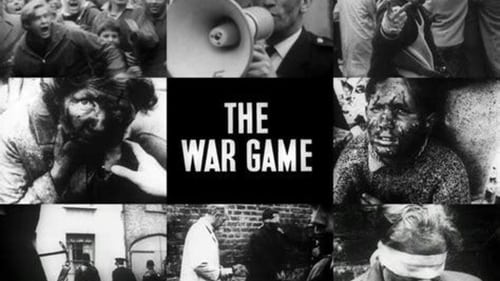
Producer
A docudrama depicting a hypothetical nuclear attack on Britain. After backing the film's development, the BBC refused to air it, publicly stating "the effect of the film has been judged by the BBC to be too horrifying for the medium of broadcasting." It debuted in theaters in 1966 and went on to great acclaim, but remained unseen on British television until 1985.

Writer
A docudrama depicting a hypothetical nuclear attack on Britain. After backing the film's development, the BBC refused to air it, publicly stating "the effect of the film has been judged by the BBC to be too horrifying for the medium of broadcasting." It debuted in theaters in 1966 and went on to great acclaim, but remained unseen on British television until 1985.

Documentist (uncredited)
A docudrama depicting a hypothetical nuclear attack on Britain. After backing the film's development, the BBC refused to air it, publicly stating "the effect of the film has been judged by the BBC to be too horrifying for the medium of broadcasting." It debuted in theaters in 1966 and went on to great acclaim, but remained unseen on British television until 1985.

Director
A docudrama depicting a hypothetical nuclear attack on Britain. After backing the film's development, the BBC refused to air it, publicly stating "the effect of the film has been judged by the BBC to be too horrifying for the medium of broadcasting." It debuted in theaters in 1966 and went on to great acclaim, but remained unseen on British television until 1985.
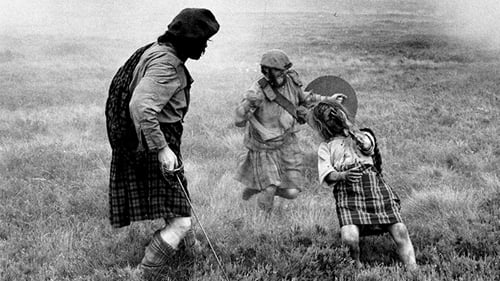
Producer
Culloden, Scottish Highlands, April 16th, 1746. It was one of the most mishandled and brutal battles ever fought in Great Britain. Its aftermath was tragic. The men responsible for such a disaster must be exposed. The men, women and children who suffered because of it must be remembered.

Field Interviewer (voice) (uncredited)
Culloden, Scottish Highlands, April 16th, 1746. It was one of the most mishandled and brutal battles ever fought in Great Britain. Its aftermath was tragic. The men responsible for such a disaster must be exposed. The men, women and children who suffered because of it must be remembered.

Writer
Culloden, Scottish Highlands, April 16th, 1746. It was one of the most mishandled and brutal battles ever fought in Great Britain. Its aftermath was tragic. The men responsible for such a disaster must be exposed. The men, women and children who suffered because of it must be remembered.

Director
Culloden, Scottish Highlands, April 16th, 1746. It was one of the most mishandled and brutal battles ever fought in Great Britain. Its aftermath was tragic. The men responsible for such a disaster must be exposed. The men, women and children who suffered because of it must be remembered.

Writer
“The Forgotten Faces (1961), a film reconstruction of the Hungarian revolution of 1956, won Watkins another amateur Oscar, and to this day, the film is praised in England as "one of the most memorable amateur films ever made".

Director
“The Forgotten Faces (1961), a film reconstruction of the Hungarian revolution of 1956, won Watkins another amateur Oscar, and to this day, the film is praised in England as "one of the most memorable amateur films ever made".

Editor
A short story narrated by an unknown British soldier who reveals his hopes, fears, and disillusionment while heading into battle against the German army.

Cinematography
A short story narrated by an unknown British soldier who reveals his hopes, fears, and disillusionment while heading into battle against the German army.

Producer
A short story narrated by an unknown British soldier who reveals his hopes, fears, and disillusionment while heading into battle against the German army.

Writer
A short story narrated by an unknown British soldier who reveals his hopes, fears, and disillusionment while heading into battle against the German army.

Narrator (voice)
A short story narrated by an unknown British soldier who reveals his hopes, fears, and disillusionment while heading into battle against the German army.

Director
A short story narrated by an unknown British soldier who reveals his hopes, fears, and disillusionment while heading into battle against the German army.

Director
A reconstruction of the allied landing in occupied France during the second world war.
